College of College of Graduate Studies
Start by fixing boys and men, to fix society
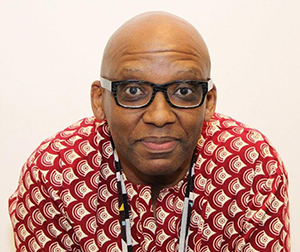
Prof Kopano Ratele
What are we to do when daily news reports are about fathers killing their children, women being physically abused by their partners and learners being beaten by teachers as a corrective action to improve bad behaviour?
Prof Kopano Ratele has his eyes fixed on setting the agenda to end violence, to promote gender equality, to give birth to new progressive masculinities and to nourish healthy family structures.
Ratele is a research professor at the Institute for Social and Health Sciences (ISHS) in the College of Graduate Studies at Unisa. He is also the director of the Violence, Injury and Peace Research Unit, a joint initiative between Unisa and the South African Medical Research Council.
He is a regular contributor to newspapers, television and radio on issues related to boys, men, masculinity, violence and fatherhood.
Among other several projects, Ratele leads the "Masculinity at University" project funded by the DST-NRF Centre of Excellence in Human Development at the University of the Witwatersrand, and the Museum of Boys, supported by the ISHS. To spread his footprint even further, he has 10 master's and doctoral students, and two postdoctoral fellows under his supervision.
Work with black boys and men to reset their masculinity and relationships
Prof Ratele’s research studies focus on boys, men, masculinities and African psychology, an interest that he developed in his twenties when he started reading literature on black men, while working at the University of the Western Cape.
He got his hands on Steve Biko’s "I write what I like" and became intrigued by a chapter entitled "We blacks". He was captivated by the statement "Black people, under the Smuts government, were oppressed, but they were still men", in a chapter that starts off by stating what black people have lost and ends up talking about men. Ratele believes that, although the book is about black people, it is very much concerned about men.
The more he read literature about black people by activists and thinkers like Steve Biko, Frantz Fanon and Cyril Lionel Robert James, the more inspired he was to follow up on their insights. "All of them, at some points of their work, are writing about how, if you start by fixing men, it can lead to fixing black people’s problems - the black society," said Ratele. There is a critique to be advanced against these thinkers for their gender outlooks, he says, but working gender-critically with men of the race, alongside the work of women of the race, is an imperative.
It is that history that has guided Prof Ratele for over 20 years to work specifically with black boys and black men to reset their masculinities with black women, black girls, and with other boys and men for healthier identities, happier relations and productive lives in society.
Doing masculinity and femininity at home
The steady increase in gender-based violence, committed by men against women in South Africa, has seen Ratele and Rebecca Helman, his PhD candidate, look into the "complex constructions of gender in South African families in their practices of (in)equality at home".
The project, about traditional and egalitarian families, looked at 18 families from different cultural and economic backgrounds, to get an understanding of how parents groom their children, how they talk about gender to them, and how they practice masculinities and femininities.
The idea was to look at how families think about gender and gender equality. "We wanted to find out who they think is the head of the family," said Ratele. Some families said the father is not the head of the family, and, in those families, they shared responsibilities and talked about what it means to be a boy/girl or man/woman. Other families were closer to the patriarchal end, where the father is identified as the head of the household. They found that families that are closer to the patriarchal end tended to use religion and culture to justify the role of men as the absolute decision maker and head of the family.
Equality in families
Against the background of a Constitution that says equality is a right for all, how do South African families make gender equality a reality?
In another study, about gender equality in families, a survey was circulated to over 1 700 South Africans across the 9 provinces. The questions included the following: "Who takes care of the children?", "Are you violent?", "Have you ever verbally, sexually and physically abused your partner?" and "Do you treat males and females as equals?"
One of the interesting findings is that South African men and women reported that they are equal and treat each other with respect. "We have been successful as a country in disseminating the idea of equality as a good state of affairs and so people want to be good or be more successful in living out equality," said Ratele.
Even though people say they believe in equality, in practice, they largely still believe that there are certain roles for women and men. They believe men should be the breadwinners and women the housekeepers.
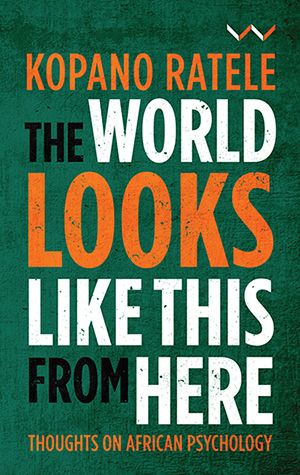
"The World Looks Like This From Here"
Violence is not a behavioural corrective action
Speaking about present day realities and towards shaping futures, Prof Ratele, together with his research team, has introduced a public awareness and parenting skills project, which is conducted at Early Childhood Development/aftercare centres in Vlakfontein and Thembelihle, in Gauteng, and Langa and Gugulethu, in the Western Cape.
Children between the ages of 4 and 8 years, as well as teachers and parents, are taught how to understand gender, gender equality, sexual consent and non-violent corrective actions for resolving problems. To further promote equality and to end violence, parents are taught proactive parenting skills. "What you have to do is to inculcate this belief that violence is not a way to correct behaviour." The team has produced pamphlets, posters and online resources to assist parents and teachers to continue the discussion on gender, equality and non-violence.
Books of influence to influence change
A former president of the Psychological Society of South Africa, Prof Ratele has published eight books, several of which focus on boys, men, masculinity and African psychology. These include:
- The World Looks Like This From Here: Thoughts on African Psychology
- Engaging Youth in Activism, Research and Pedagogical Praxis: Transnational and International Perspectives on Gender, Sex and Race
- Liberating Masculinities
- There was this Goat: Investigating the Truth Commission Testimony of Notrose Nobomvu Konile
- From Boys to Men: Social Constructions of Masculinity in Contemporary Society
- Intergroup Relations: South African Perspectives
- Self, Psychology and Community
- Social Psychology: Identities and Relationships
Liberating Masculinities, published in 2016, is a set of research essays about violence, why feminism is good for men and why thinking of gender relations is good for society. It encourages people to think about masculinity and culture. While culture is important in terms of what it means to be a man and woman, one needs to understand men within their cultures and the problems with culture in regard to the kinds of message that it gives to men.
In 2018, Ratele, together with colleagues from Finland, the University of Cape Town and University of the Western Cape, worked on an edited volume, funded by the National Research Foundation and the Academy of Finland. The transnational project speaks about commonalities and differences between South Africa and Finland by comparing the men and women in both countries, respectively, and also the practices and ideas of straight men and queer men in these countries.
"The World Looks Like This From Here", a lyrical, philosophical and provocative set of thoughts on how to teach, understand psychology from African-centred perspectives came out in August 2019. While the book is broadly about psychology, it is deeply rooted in the belief that a meaningful life for Africans is only possible if Africa is at the centre of their line of vision and experience. Among other issues, the book looks at matters such as thoughts about black lives, alienation, teaching black children about blackness, psychological liberation, and how American and Western influence can be overcome in thinking, healing, teaching and learning.
In his next book on masculinity, Ratele aims to speak directly to boys. "Perhaps the most important thing is to teach boys kindness, self-love, care for others, and healthy relationships in order to enhance equality and new progressive boyhood and manhood," he said.
* By Mpho Moloele, PR and Communications Assistant, Department: Research, Innovation & Commercialisation
Publish date: 2019-11-29 00:00:00.0


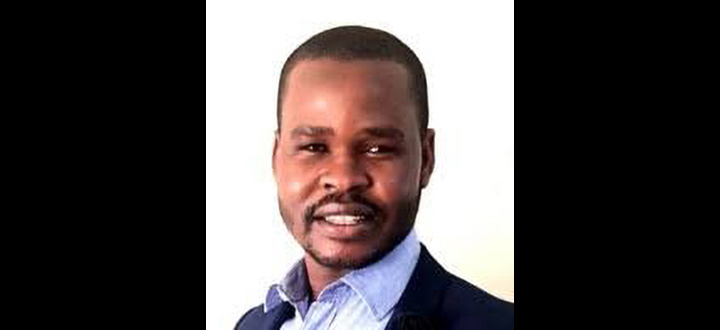 Mental health among men in the workplace needs more attention
Mental health among men in the workplace needs more attention
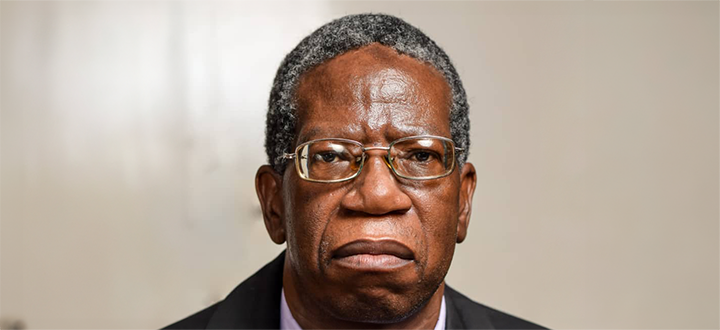 "I owe everything to Unisa and my late supervisor's priceless mentoring"
"I owe everything to Unisa and my late supervisor's priceless mentoring"
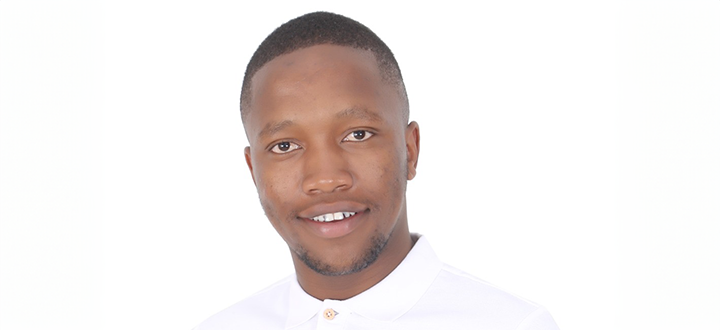 Majikijela - a queer scholar raising homosexuality awareness through his work
Majikijela - a queer scholar raising homosexuality awareness through his work
 Unisa and Inqaba Biotec unveil groundbreaking DNA research platform
Unisa and Inqaba Biotec unveil groundbreaking DNA research platform
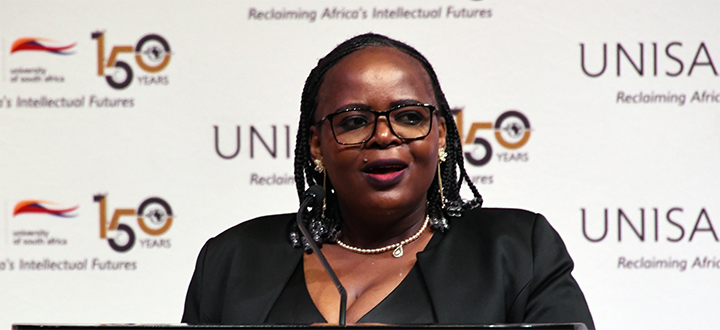 College of Law appoints esteemed scholar as executive dean
College of Law appoints esteemed scholar as executive dean